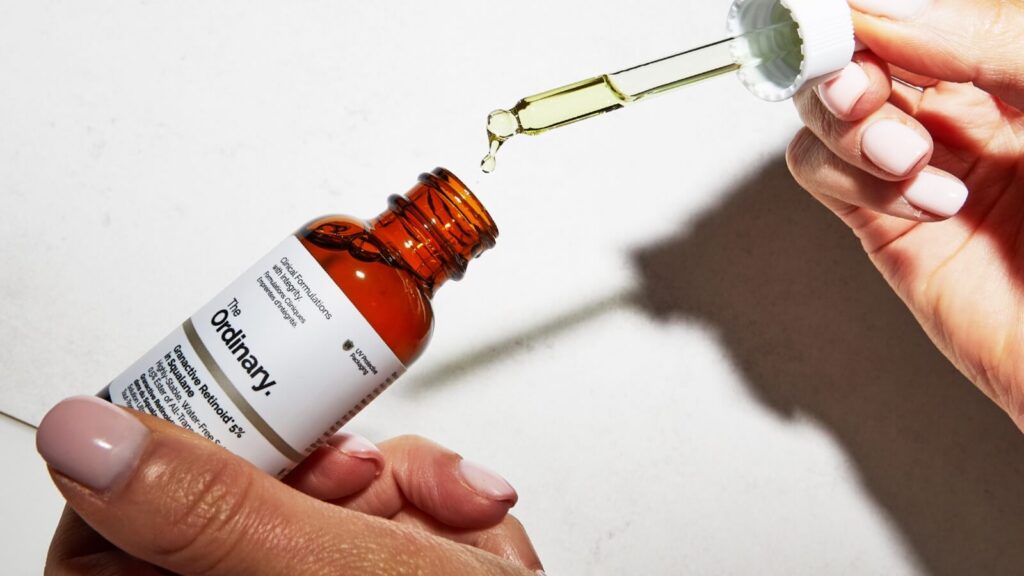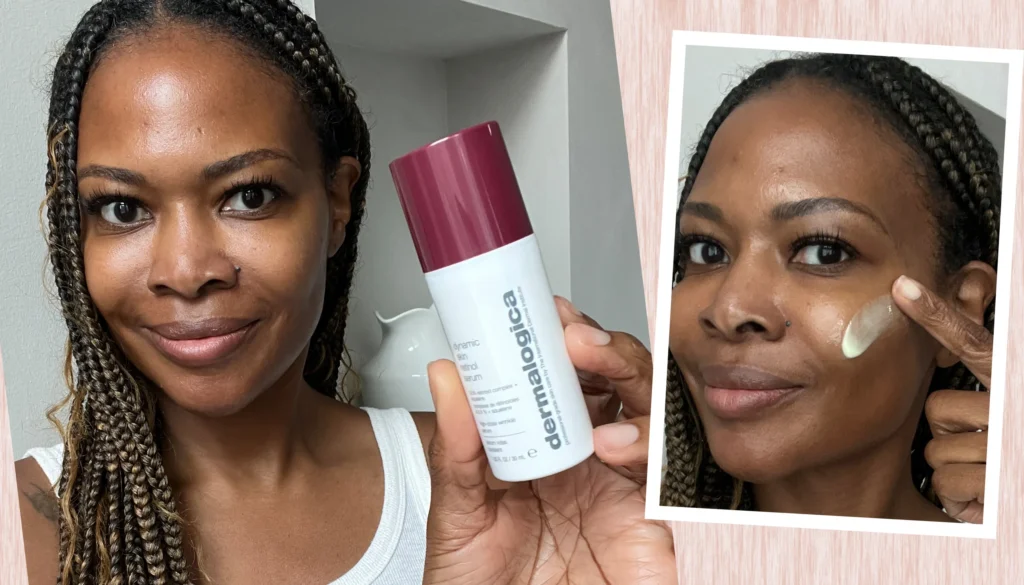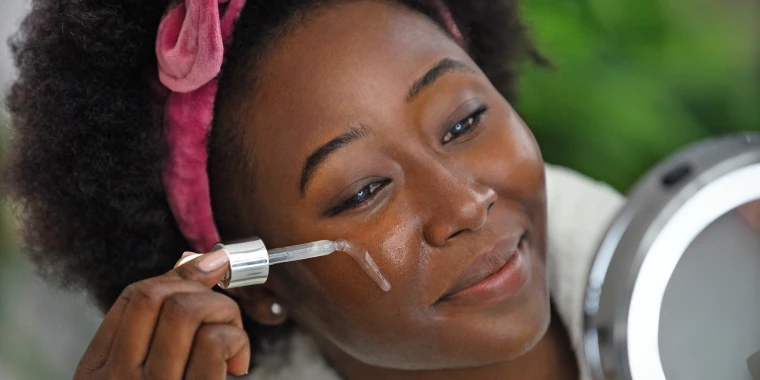Any beauty buff will be familiar with retinol by now. The in-demand ingredient has been hailed as the answer to smoother, more youthful, line-reduced skin for quite some time now, although its usage doesn’t come without fair warning.
In fact, it’s only recently that the European Union Commission proposed tighter restrictions on the much-loved skincare ingredient – banning the use of it above certain concentrations in order to reduce unwanted side effects. Purging, redness and irritation are all on this list if used without caution.
But what does the buzzy ingredient actually do, and why is it so loved within the skincare industry, if used safely? Well, we asked not one, not two, but four experts to answer all your burning questions, so keep reading below to find out.
What is retinol?
“Retinol is a type of retinoid that is derived from Vitamin A,” shares Aruj Javid, Lookfantastic’s in-house pharmacist. “It is a very sought-out skin beneficial ingredient in the skincare market due to its ability to help with many skin issues, such as a loss of firmness, fine lines and wrinkles often experienced by maturer-looking skin, acne-prone skin, an uneven skin tone and generally skin that tends to appear dull and lacks radiance”.

Dr Derrick Phillips, a consultant dermatologist specialising in acne, rosacea, rashes and skin cancer, adds that “almost everyone can benefit from having a retinoid in their skincare routine, and the key is to start low and gradually build up over time”.
What does retinol do?
“There are multiple benefits to using retinol within your routine,” explains Dr Jinah Yoo, a consultant dermatologist, medical director and founder of the Maylin x Dr Jinah Yoo dermatology clinic. “It reduces wrinkles and fine lines as it stimulates collagen production which helps to improve skin elasticity and firmness, ultimately reducing the appearance of wrinkles and fine lines. It also improves overall skin texture when used regularly, resulting in a smoother, more even skin tone by promoting cell turnover and exfoliation.”
Dr Hiba Injibar, consultant dermatologist and founder of Dermasurge Clinic added that retinol has been found to “help address concerns such as hyperpigmentation”. So, if that’s a key concern of yours, it looks like retinol could also be just what you’re looking for.

How to use retinol
As retinol can be an irritant, how and when you use it is a key factor. Javid stresses that the most important thing when using retinol is to introduce it to your skincare routine slowly. “If you are trying retinol for the first time, start at a lower percentage and then build up accordingly,” she says. “Remember you only need a pea-sized amount each time you apply retinol.” We’ve included a list of all the expert-recommended products below, beginner-friendly options, included.
Once you’ve found the perfect product, “begin using it two to three times a week, gradually increasing frequency as tolerated,” recommends Dr Injibar. And when it comes to applying it, at night is always best. “Wash your face with a gentle cleanser and pat it dry before applying retinol – you always want to apply it to clean, dry skin as this helps to ensure maximum absorption of the product,” adds Dr Yoo.
“Use a pea-sized amount and gently massage it onto your face and neck. To help prevent dryness and irritation, follow up with a moisturiser once the retinol has fully absorbed into your skin,” Dr Yoo continues. And remember, “it is essential that you use a sunscreen of SPF30 or higher every morning as retinol can increase skin sensitivity to sunlight”. Plus, it is always advised to do a patch test before introducing a skin ingredient or product to your skin routine, especially if it is your first time.
Can you use hyaluronic acid, niacinamide or salicylic acid with retinol?
Of course, many of us have a range of skincare products all targeting different concerns. While vitamin C brightens, hyaluronic acid hydrates and AHA’s and BHA’s slough away dead skin cells so your skin is soft and supple. But as retinol is an active ingredient, you do have to be careful with what you layer on top or underneath it.
Dr Yoo stresses that it’s best to avoid combining retinol with other active ingredients as this can cause “extreme irritation”. This is why the experts advise applying retinol to a cleansed face and applying only a moisturiser on top to help hydrate the skin. So, best to use your vitamin C serums in the morning, retinol at night, two to three times per week, and your other favourite skincare serums on the days in between to avoid any crossover.
Although, as we all know, sometimes moisturisers aren’t all that simple, so make sure to double-check what’s included in the ingredients list. What Dr Yoo means by active ingredients are ones that have been scientifically proven to have an effect on the skin – think Vitamin C, salicylic acid and glycolic acid. So it’s best to leave a good amount of time in between using these products and retinol, i.e., one in the morning, one in the evening or on alternate days. Hyaluronic acid and niacinamide get a big thumbs up however, despite being active ingredients, they’re gentle enough and help to hydrate the skin, meaning they can even lessen the drying effects of retinol.


